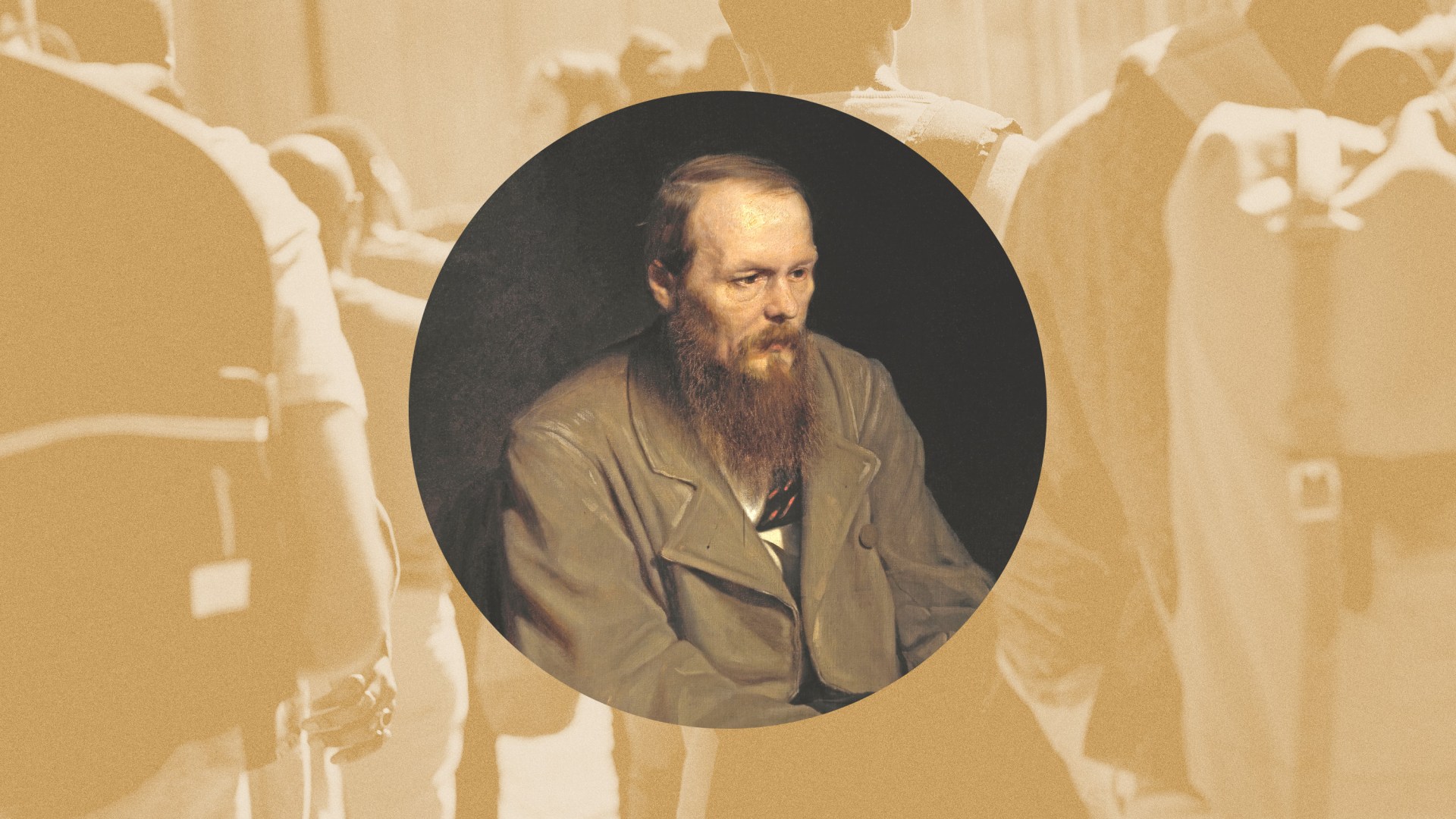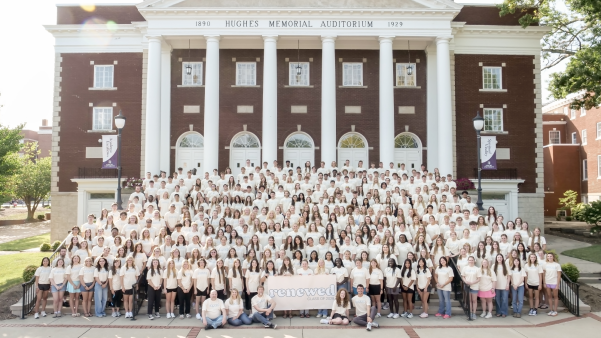This spring, our oldest son will graduate from high school. We have spent the last several months guiding him through what feels like endless writing and rewriting of application essays and supplemental essays, screening colleges, and planning visits. The busyness of this season often obscures the fact that my husband and I are about to send our child into a chaotic world, often hostile to Christian convictions.
In the midst of the noise, it is easy to ignore the nagging thought that maybe I have not done a good job at parenting. Maybe I should have done more to teach my children about the dangers of secular ideologies or the importance of family and church community in order to prepare them for the confusion to come.
During this application season, I’ve been reading Russian writer Fyodor Dostoevsky’s collection of personal correspondence. Recently, I came across a letter that struck a chord with me. In the letter, Dostoevsky responds to a reader: a woman unknown to him who has asked for guidance on questions of parenting. More specifically, she’s wondering how to teach her eight-year-old what is good and right in the midst of confusing times.
At the time of their correspondence (1878), the Russian Empire was undergoing monumental cultural shifts. Less than two decades had passed since the abolition of serfhood. Accelerated liberalization had spawned anarchist, socialist, and nationalist movements. These radical ideologies contributed to the rapid erosion of established values and traditional ways of life. Given this context, it’s perfectly understandable that the mother felt it was her duty to teach her child about good and evil, as society no longer fulfilled that role.
In his response, Dostoevsky does not offer any practical or prescriptive suggestions. Nor does he get personal. (We know very little of Dostoevsky as a parent, although he had four children.) Instead, he writes from a lifelong fascination with human life in its individual and social contexts, played out in novels like The Brothers Karamazov and The Possessed.
Like the nameless mother in Dostoevsky’s letters, I also want to instill truth in my children, strengthening them as they most certainly face the whiplash of ideas and movements, information and misinformation, not to mention hazards of their own making. The common weight of parental responsibility in a culture marked by rapid shifts instantly connected me to this correspondent, although we are separated by space and time.
So much of contemporary Christian parenting literature is aimed at shaping a child’s character or optimizing their environment to ensure a desired outcome, be it a resilient, emotionally healthy kid or a godly, faithful adult. This approach aims to provide practical recommendations for weary parents.
The Russian writer offers a very different starting point. Perhaps he knew that prescriptive suggestions are often lacking because they don’t work for everyone. Instead of suggesting changes to her child-rearing techniques, the great writer turns his gaze toward the mother’s soul.
Dostoevsky was not only a great writer but also a careful reader. In the mother’s letter, he senses the intentions of a woman who takes her parenting seriously and genuinely cares about truth and goodness. She is a good mother; he compliments her. He also acknowledges her anxiety about the state of the world and her desire to protect her child from the chaos of modernity. The dangers are real, and Dostoevsky never downplays them.
He also picks up on her obsessive tendencies. The mother has put her best intuitions in danger of overextension, Dostoevsky tells her, warning that parenting without moderation is always oppressive. Some of the lessons she’s concerned about imparting can only be learned firsthand by her son. Perhaps, Dostoevsky suggests, she has exaggerated her parental responsibility, given herself a task too great for a mother to fulfill.
So what is her motherly duty? Dostoevsky explains that merely teaching “what is good, and what is not good” isn’t sufficient for a child’s formation. All the abstract knowledge in the world will be useless if and when her child asks why they should respect, love, or honor her.
Instead, Dostoevsky suggests that the only thing she can do as a parent is to be good (and that is more than enough). A true writer, he is encouraging her to show, not tell. “Be good, and let your child realize that you are good,” he writes. “In that way you will wholly fulfil your duty towards your child, for you will thus give him the immediate conviction that people ought to be good.”
How does Dostoevsky define goodness? He lists some qualities: love of truth, rectitude, goodness of heart, freedom from false shame, and constant reluctance to deceive. Each trait connects to the first: love of truth. Truth is never abstract for Dostoevsky; it is not a set of propositions or doctrines one merely assents to without a change in behavior. For him, love of truth is the personal commitment to moral goodness in everyday life and opposition to any form of a lie, both lies to ourselves and lies to others.
Crucially, truth is never personal or individual. Commitment to moral virtues divinely ordained is necessary. The only piece of practical advice Dostoevsky gives to the mother is to get her child “acquainted with the Gospel” and “teach him to believe in God.” There is nothing better than the Savior, the great writer tells her. This is an absolute must for Dostoevsky—no person can grow up to be good without Christ.
In his response to the mother’s letter, Dostoevsky tells her that the memory of a parent who embodies all the “good qualities” he named above “will sooner or later make a new creature of [their] child,” even if that parent makes occasional mistakes. Bringing up a child in such truthful living is like grafting a branch onto a good tree.
When a parent loves the truth and embodies goodness daily, the child will naturally love such a parent. And when the child loves their good parents, they, in fact, love the good such parents embody. According to Dostoevsky, this is the only way a parent can teach a child to love that which is good.
His answer both eased my anxiety and terrified me. On the one hand, Dostoevsky gives simple advice to a set of very complex questions. There is no need to master elaborate philosophical systems and social theories to teach my children the meaning of good and evil. According to Dostoevsky, people have a natural yearning for truth, and this yearning comes to our aid in the work of parenting.
Herein lies the terrifying part, for the work of parenting starts with my own self—my love of truth, rectitude, goodness of heart, freedom from false shame, and constant reluctance to deceive. I have to embody the love of truth and goodness and live them out in my daily life if I want to teach my children to love what is good.
Dostoevsky’s response reveals a deeply Christian intuition that we ought to begin with ourselves, not the wrongs we may encounter “out there” in others or society. This is the very spirit of the gospel of Jesus Christ: “I tell you, no! But unless you repent, you too will all perish” (Luke 13:3).
Parenting does not come easy for everyone. In my case, motherhood has been an unexpected revelation. I discovered something in me I did not know I had. The bond I felt with each of my children from the beginning was so profound that, for the first time, I felt that I got close to understanding God. To experience such love was nothing other than a miraculous gift.
Motherhood is surely a gift, but it is not only given for the benefit of my soul—it is also for my children’s good. As my children grow up, I wonder: What exactly is this good? What do I want to achieve through my parenting? My children’s physical and emotional well-being? Yes, but this is surely not enough. Their salvation? That’s beyond my power. Their worldly success? This is too narrow a goal.
As my children have moved from early childhood to adolescence, the purpose of my parenting has crystallized in one short prayer: “Lord, if I have taught them to love, I have done well.” Fyodor Dostoevsky reminded me that such endeavor begins with an honest examination of my own heart and mind.
Vika Pechersky is the Submissions Editor at Mere Orthodoxy.














